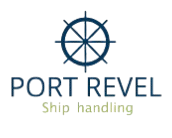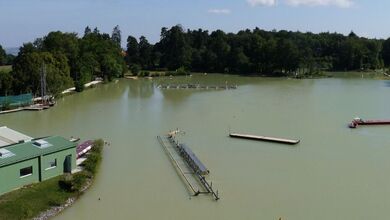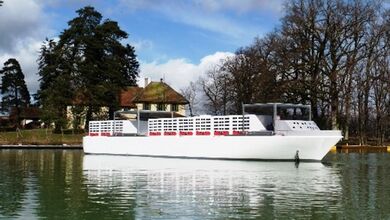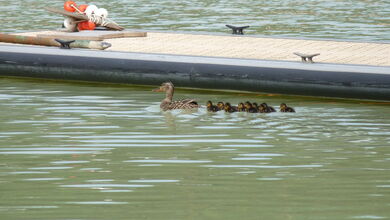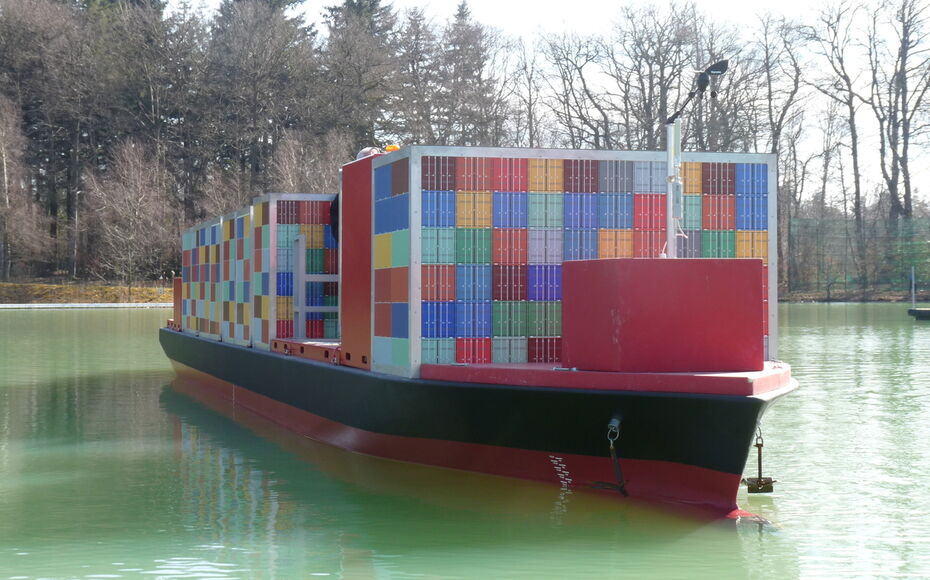
All courses
Presently, 80 to 90% of all the center's trainees are pilots! "Manned Models" training provides the most realistic simulation of ship handling in confined waters. Therefore it is recommended that Marine Pilots should attend these specialized courses. Each port has different needs, however, as minimum, Marine Pilots should attend the Manned Model courses periodicaly.
Ship handling courses on manned models
The courses are given by extremely experienced instructors, all of whom are former maritime pilots.
In the course programme, classroom teaching is kept to a strict minimum of about one hour a day and a total of five hours per week. A manual is given to each participant. Classroom time is spent going over the theory required to fully understand the exercices to take place on the lake, conducting a briefing concerning these exercices and, when appropriate, a debriefing at the end of the day. This debriefing is based on the track recording taken during the day, which are reviewed in real time in the classroom, giving a opportunity for discussion and feedback sharing.
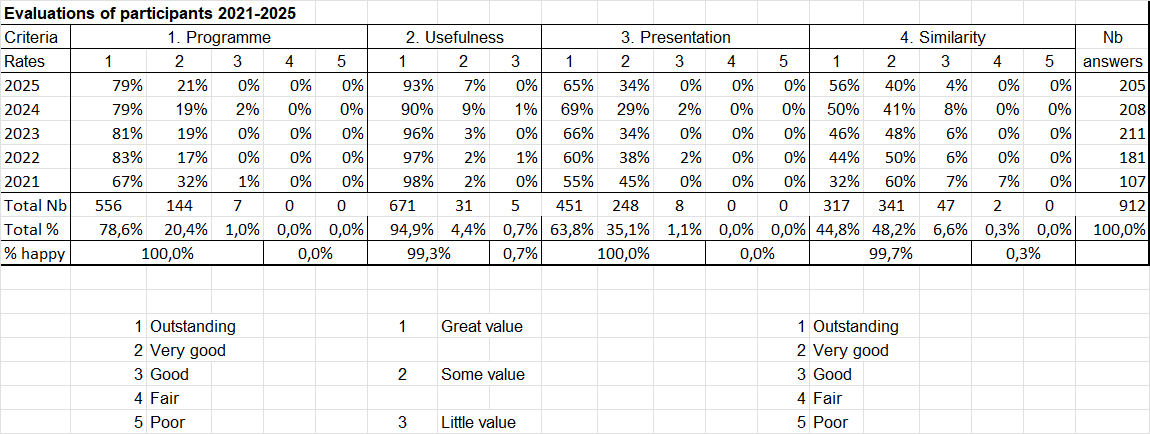
Our different courses
Courses
Their aim is to enable Masters and Pilots to develop and acquire new skills through a better understanding of a ship's behaviour sailing in restricted water conditions at maneuvering speed. Periodic training on scale models will maintain your ship handling skills at the highest level and periodic evaluations will show it.
- The courses last generally 5 days from Monday morning to Friday evening.
- They are run from April to the end of October each year.
- They consist of theoretical lectures (1 hour each morning) followed by practical exercises on the lake using the models.
- The centre can accommodate up to 10 participants at the same time.
- They embark on the models in pairs.
- Each student is alternately captain and chief engineer-helmsman.
- They change model and partner during the day.
- A very large number of exercices are available (around 140). This enables Port Revel to offer both basic training shiphandling courses and very specific customized courses.
Due to Froude's laws of similitude applied at Port Revel, the time scale is the square root of the linear scale, i.e. square root of 1/25 = 1/5 at the centre. After a week's training, the captains and pilots have had about 35 hours of practical ship handling. To carry out the same number of manoeuvres in real life they would need almost 175 hours!
Certificats
Training on the lake is the "raison d'être" of Port Revel. Participants sail on it for about three and a half hours in both the morning and the afternoon, making a total of seven hours per day and 35 hours per week. It should be noted that, in view of the time scale, this length of time spent on the lake corresponds to 175 hours in reality. The level of concentration required and the resulting tiredness are hence understandable.
At the end of the week each trainee receives a diploma attesting to their passage and the type of training carried out.
We fight against falsification of our certificates! Do not hesitate to contact us to check real attendance to our courses.
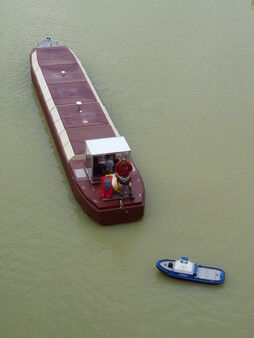
Evaluation
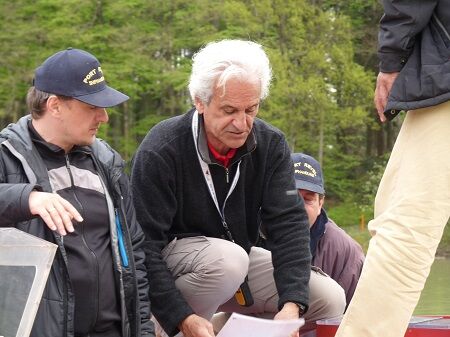
At the end of the course, each participant should be able to:
- Understand the effects of the ship's behaviour when exposed to wind, current, shallow water, interaction with another ship and bank effect,
- Demonstrate competence in manoeuvering ships when entering locks, canals and channels and when berthing/unberthing (with or without current),
- Demonstrate adequate reactions when exposed to emergencies.
At the end of the course, the participants receive Port Revel's certificate and badge. The certificate includes the following statement:
"This certificate is issued in accordance with STCW 95, IMO Model Course 1.22 and IMO Resolution A 960,
which recommend that ensuring continued proficiency be undertaken at intervals not exceeding five years."
As an effort against falsification of certificates, a list of participants is updated each year so that customers can check real attendance of participants at any time.
At the end of each course, all participants are asked to complete a written evaluation of the course programme, the usefulness of the course and the similarity of the manoeuvres and ship models.
The Director takes any necessary action to deal with customers' complaints with appropriate feedback to them.
Port Revel is also assessed during the annual seminar held by all instructors and the Director
Assessment
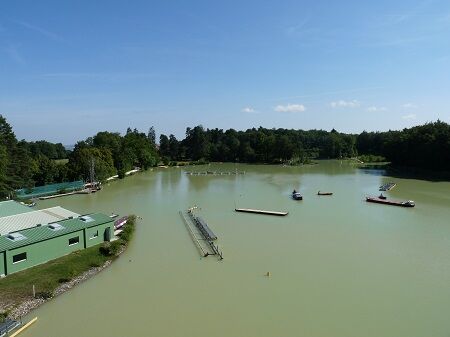
Seafarers consider ship handling more as an art than as an exact science...
Port Revel tries to contribute in mitigating this feeling. It is known that technical and non-technical skills are strongly related and that they influence each other. Manned model training is focused mainly on technical skills, but a few non-technical aspects are included in Port Revel's assessment.
The following categories of skill are used in the assessment matrix:
- Manoeuvring
- Learning efficiency
- Situational awareness
- Safety awareness
- Adherence to procedures
- Qualitative remarks
The assessors are the senior instructors having at least 3 years of experience at Port Revel.
Attendance of an experienced fleet superintendent from the participants company is encouraged.
The tracks used for assessment of the participants are archived by Port Revel for a period of five years.
5 "grades" can be given:
- "E" Excellent, a truly remarkable level,
- "VG": Very Good to differentiate between trainees,
- "G": Good, it is the normal level of a young marine pilot,
- "A": Acceptable, this note says he is doing and that it is not dangerous,
- "NFD" Need Further Development, means nothing more than "could do better".
